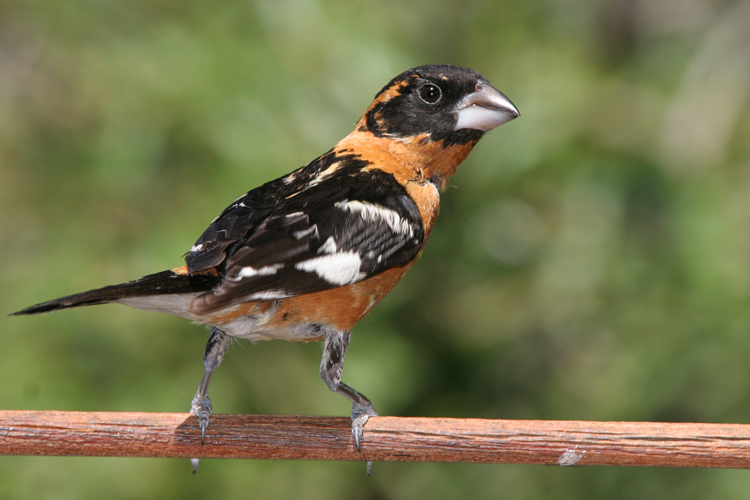
Location: Palomar Mountain, Palomar, CA
Date: 2006-07-06
Lens: Canon 300mm IS F4 + 1.4x II Converter

 Black-Headed Grosbeak
Pheucticus melanocephalus
Black-Headed Grosbeak
Pheucticus melanocephalus
 Description
DescriptionThe Black-headed Grosbeak is fantastic singer, often giving a performance from high up within a tree. Despite the fact that the birds large beak looks like it could crack open the toughest of seeds, the Black-headed Grosbeak has a varied diet of seeds, fruit, and insects, including the monarch butterfly, which is toxic to many birds. The scientific name melanocephalus is Greek for "black-headed".
General: 7.5 inches in length.
Adult Male: Black head and upperparts. Large, conical bill. Orange collar, rump, and underparts. Whitish midbelly. White wing patches. Black tail with white spots. White undertail coverts.
Adult Female: Dark gray-brown cheek, crown, and upperparts. Buffy-white eyebrow and midcrown stripe. Large, conical bill with dark upper mandible and pale lower mandible. Buffy-orange underparts. Dark streaks along its sides. Two white wing bars.
Immature: Similar to female.
Coniferous and broadleaf woodlands.
 Nesting
Nesting3-4 greenish eggs with brown spots. The eggs have a 12-13 day incubation period. Fledging occurs in 11-12 days. Both parents share in the incubation of the eggs. The nest is loosely built with sticks and lined with rootlets, grasses, and leaves. It is typically built in the dense foliage of an outer tree limb.